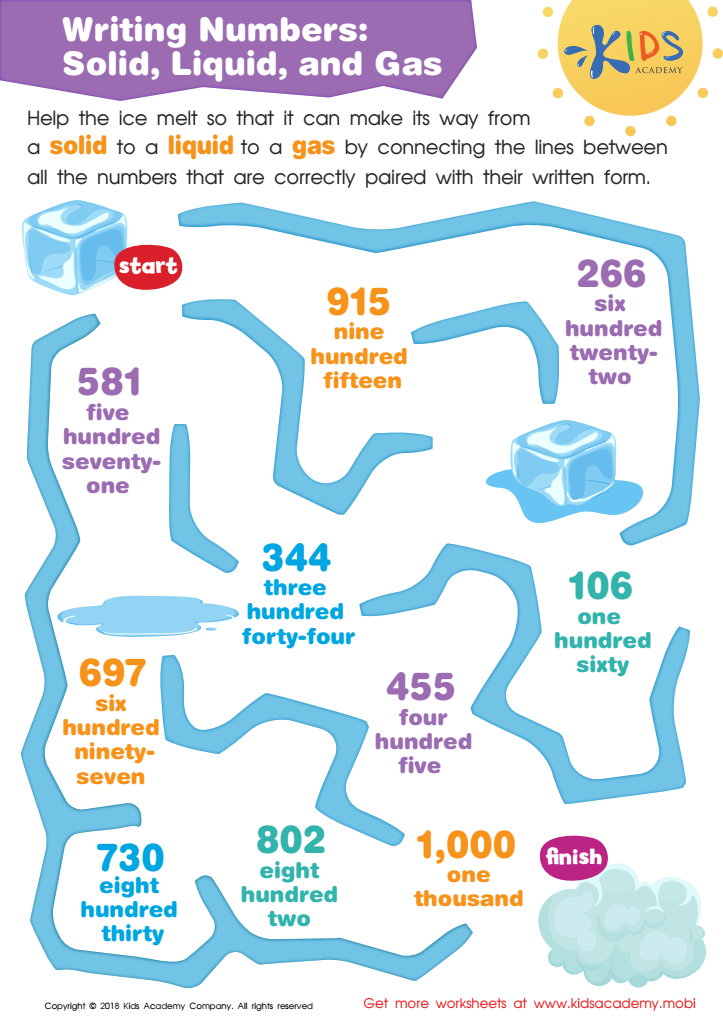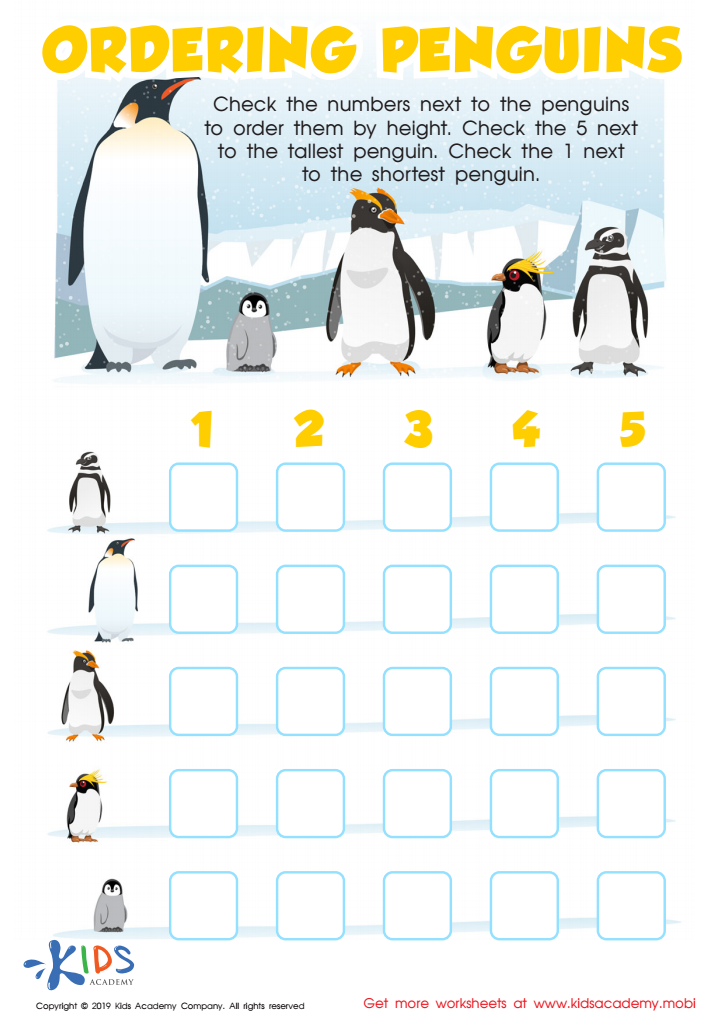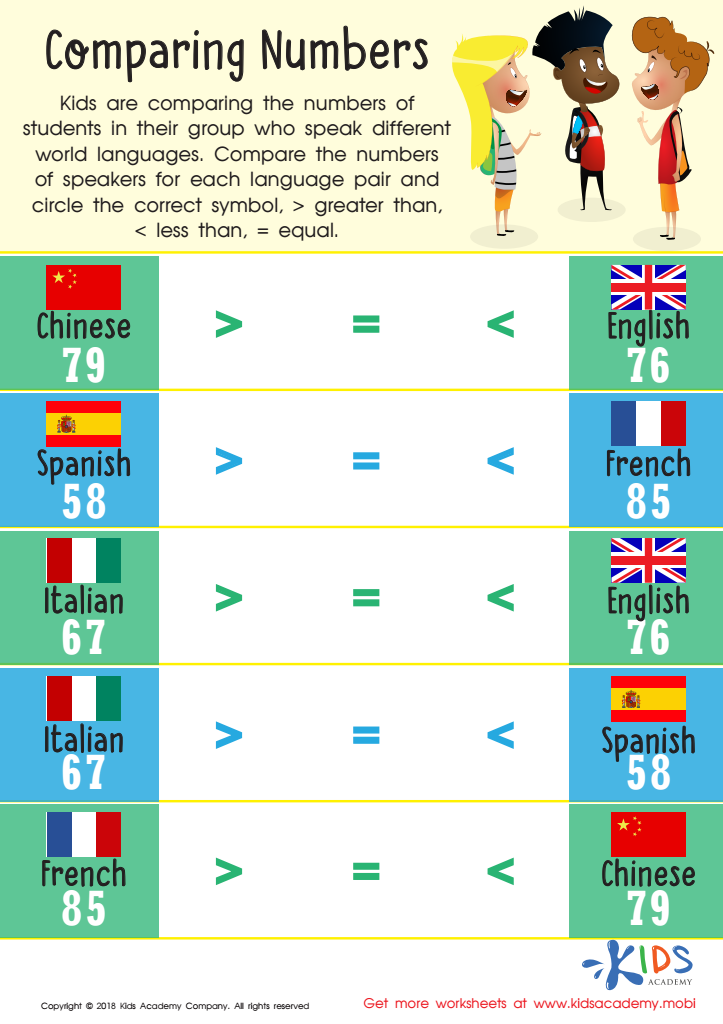Basic counting skills Normal Math Worksheets for Ages 7-8
3 filtered results
-
From - To
Discover our Basic Counting Skills Normal Math Worksheets designed specifically for ages 7-8! These engaging and interactive worksheets help young learners master essential counting concepts through fun exercises. Perfect for classroom use or home practice, our worksheets focus on number recognition, counting objects, and simple addition techniques. Tailored to enhance confidence in early math skills, these resources foster a solid mathematical foundation essential for future learning. Explore various themes and challenges that cater to different learning styles, ensuring every child progresses at their own pace. Start building counting confidence today with our colorful and inviting worksheets!


Solid, Liquid, and Gas Writing Numbers Worksheet


Ordering Penguins Worksheet


Comparing Numbers Worksheet for 1st Grade
Basic counting skills are foundational for a child's mathematical development and are crucial for overall academic success. For children aged 7-8, mastering counting not only enhances their problem-solving abilities but also builds confidence as they engage with more complex mathematical concepts. At this stage, children transition from concrete counting to abstract understanding, which serves as the groundwork for addition, subtraction, multiplication, and division.
Parents and teachers should prioritize these skills because early competency in math directly correlates with future performance in science, technology, engineering, and math (STEM) fields. Mastery of counting helps children develop number sense, enabling them to understand quantities and relationships among numbers, essential for real-world applications.
Additionally, counting skills foster critical thinking and help develop logical reasoning. Engaging children in counting games and activities can make learning enjoyable, sparking a lifelong curiosity for math. Parents and teachers play a vital role by providing enriching environments that promote practice and reinforcement of counting, ultimately leading to strong mathematical abilities. Fostering these skills early ensures that children are well-prepared for more advanced topics and enhances their engagement in classroom learning, setting the stage for long-term academic success.
 Assign to My Students
Assign to My Students




















